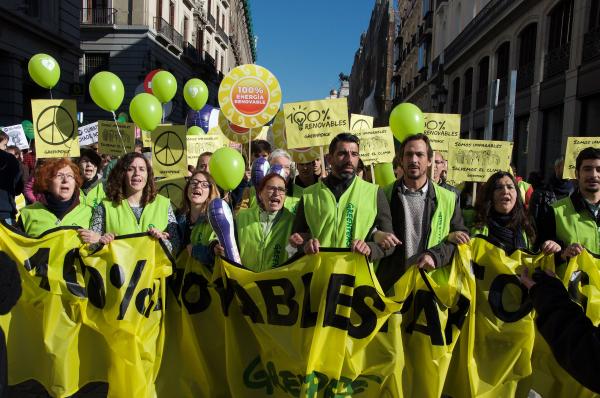“Vitamin A deficiency [VAD] is the leading cause of preventable blindness in children worldwide,” the American Academy of Ophthalmology noted last year. “An estimated 250,000 to 500,000 children become blind every year because of vitamin A deficiency. Half of these children die within a year of losing their sight.” In 2016 alone, VAD killed more than a million people.
The condition is most prevalent in poor nations like the Philippines, and the country's regulators have finally approved genetically engineered (GE) Golden Rice (GR), a crop developed literally decades ago to boost intake of beta carotene, which converts to vitamin A. Regulators in the US, Canada and Australia have determined that GR is safe for human consumption and poses no risk to the environment.
Naturally, the environmentalist group Greenpeace has reacted to the Philippines approval with feigned shock. The anti-GMO outfit “denounced the government’s approval of the commercialization of Golden Rice,” Business Mirror reported on July 26, “saying that the genetically modified organism (GMO) would make it more difficult for farmers to recover from the adverse impact of the pandemic.”
There's an eight-letter word to describe Greenpeace's assertions here. We'll leave it unsaid to keep this story family friendly, but there isn't a shred of evidence to justify the group's ongoing and unethical opposition to Golden Rice. Their claims are in italics, my replies follow.
'The continued approval of genetically modified ‘GM’ crops including so-called ‘Golden Rice’ will further drag down farmers amid climate and Covid struggles,' said Wilhelmina Pelegrina, Senior Campaigner for Greenpeace Southeast Asia.
Filipino farmers have grown GE crops for 14 years now; their yields are up and their pesticide use has plummeted. They're quite happy with these results, as any sensible environmentalist should be. It means the country is producing more food with fewer inputs. That's good for human health and the climate.
Moreover, as a vitamin-fortified rice, GR will help those in need develop and maintain a properly functioning immune system, which of course is critically important during a pandemic. Countries with high levels of VAD are plagued by infectious diseases. If anything, Golden Rice and other biotech crops are powerful weapons against the country's climate and COVID struggles.
Instead of relying on GM crops such as GR that have no proven benefits to farmers and consumers, the DA should promote ecological agriculture that works with and for farmers, and which offers Filipinos diverse grains, fruits, and vegetables for diverse diets, ensuring food and nutrition security.”
This sounds like sage advice, but it's useless and, frankly, a little insulting at this point. Imagine telling a desperately poor single mother she needs a “diverse” financial strategy that includes judicious spending habits, savings and a balanced investment portfolio. “Thanks, Dave Ramsey, now how do I pay my rent this month?” you could imagine her asking.
Because Greenpeace has no reasonable argument against GR's introduction, they have to pivot away from the issue at hand. Nobody denies that humans need a diverse diet to lead healthy lives, but this doesn't mean incremental steps in the right direction are harmful.
“This is like arguing that until we find a cure for cancer we should not treat patients by means of surgery, chemotherapy or radiation therapy,” science writer Ed Regis told me during a 2019 interview. The point is that every effective strategy is worth pursuing. GR, vitamin supplementation and other dietary interventions work in concert; they aren't mutually exclusive.
Greenpeace argued that the commercialization of Golden Rice happened despite 'longtime opposition from Filipino farmers, scientists, consumers, health advocates, and environmental groups who have clamored for stricter regulatory systems for GM crops on the basis of the precautionary principle.'
It can be difficult to address the concerns of activist groups because they understand the world fundamentally differently than scientists do. For many decades, the environmentalist movement has ensconced itself in a subjective, postmodern framework. Scientific research, the argument goes, is a social construct. It cannot be trusted because it's used by the powerful to advance some secretive, nefarious political agenda.
This is why Greenpeace appeals to fallacious arguments from popularity against GR in the face of overwhelming evidence of its safety and efficacy. The fact that many groups oppose GE crops is utterly irrelevant to the empirical questions about public health and environmental protection we're concerned with.
Activist groups and individuals who can't or won't grasp that foundational concept deserve our skepticism. Fortunately, it appears that the Philippines has finally had enough of Greenpeace's antics. Golden Rice is moving forward, and the world will be a slightly better place as a result.




